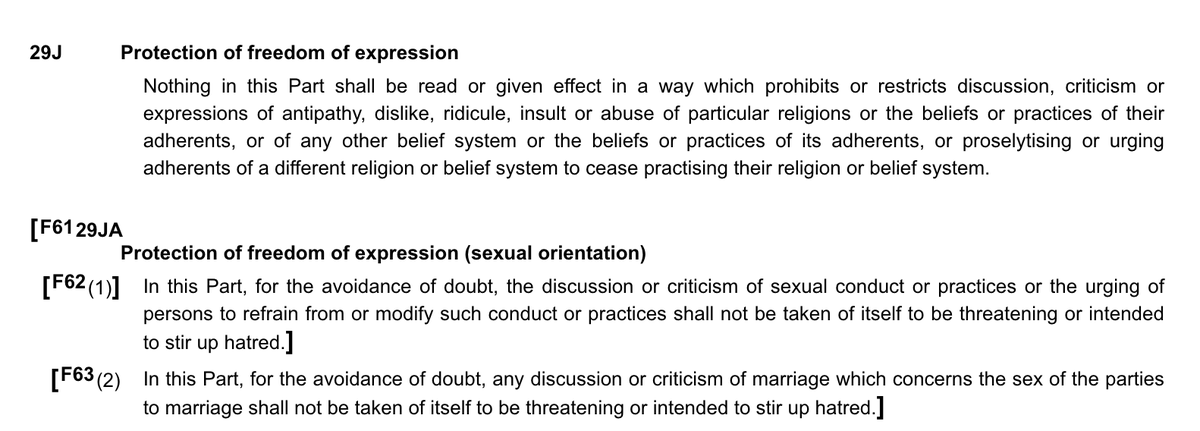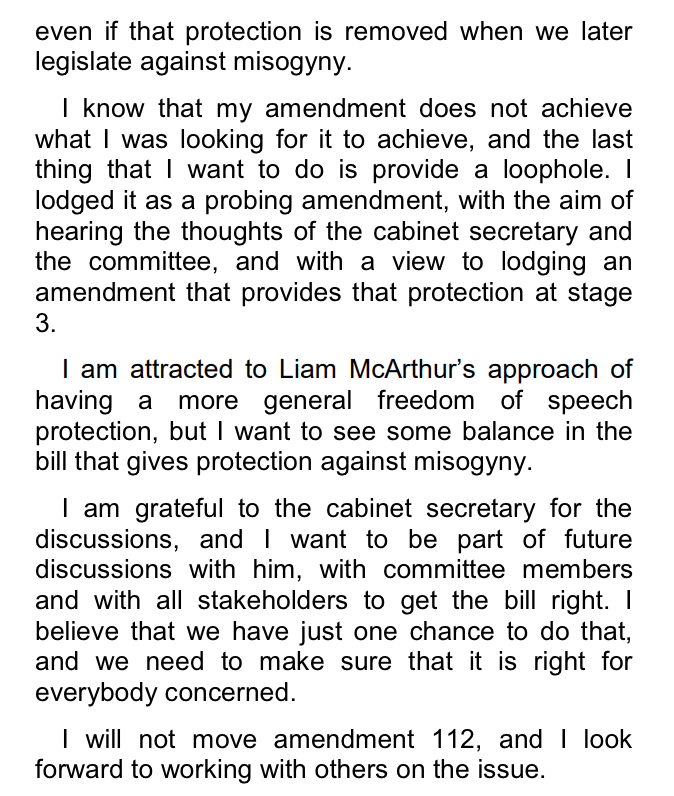Our latest article looks at recent events regarding the Stage 2 amendments on freedom of expression lodged to the Hate Crime Bill, the reaction that prompted the Justice Secretary and opposition MSPs to withdraw them, and the wider implications of this. https://mbmpolicy.files.wordpress.com/2021/02/the-retreat-on-freedom-of-expression.-a-story-in-four-parts-1.pdf
As introduced, the Bill included separate freedom of expression amendments for religion & sexual orientation. These were roughly modelled on the equivalent provisions already in place for England & Wales in Sections 29J & 29JA of the Public Order Act 1986. https://www.legislation.gov.uk/ukpga/1986/64
No such protections were included for the four other characteristics being brought within the scope of “stirring up hatred” for the first time anywhere in the UK: age, disability, transgender identity, and variations in sex characteristics.
The Scottish Government appears to have (mis)read Lord Bracadale's report as recommending protections only for the two characteristics covered by the 1986 Act, rather than taking those provisions as a model to apply across all the new characteristics.
From the start, it was evident that the risks of unintended consequences for freedom of expression were a substantial issue. The Committee highlighted this in its Stage 1 report, and the government undertook to look again at how to strengthen the Bill on this point.
Amendments on freedom of expression were lodged by the Minister as well as three opposition MSPs. The night before they were due to be debated, the Minister reported that they had agreed not to “move” their freedom of expression amendments with the exception of those on religion.
On the morning of 2 February, when members of the Justice Committee convened for Stage 2 proceedings of the bill, all four MSPs confirmed that they would not be moving their freedom of expression amendments.
Most spoke only in general terms about the broad issue and their intention to engage in a ‘collaborative’ process with the Government to draft an alternative amendment to table at Stage 3.
Although Labour MSP Rhoda Grant noted her concern about women being neither included in the bill’s coverage nor specifically recognised in its protection of free speech.
In an intervention Convener Adam Tomkins MSP expressed strong concerns about the developments of the previous 72 hours and the reaction to the types of statements provided for in Mr Kerr’s amendment.
MSPs agreed, in effect, to withdraw their proposals, abandon a detailed debate in Committee at this stage, and instead develop outside the Committee a new generic amendment on freedom of expression for cross-party agreement before Stage 3.
In response to this development, we issued this statement: https://murrayblackburnmackenzie.org/2021/02/01/debate-or-no-debate/
There are signs the government recognises that the process between now and Stage 3 cannot be conducted entirely behind closed doors. However, it is not clear how anything meaningfully public could happen in the short time available.
MSPs have been given a mass of specific evidence on the low thresholds applied for accusations of hate in relation to transgender identity. Our stage 2 briefing set out forty real-world examples that demonstrate how low the threshold already is. https://murrayblackburnmackenzie.org/2021/01/31/hate-crime-and-public-order-bill-stage-2-briefing-the-need-for-tailored-freedom-of-expression-protection-for-transgender-identity/

 Read on Twitter
Read on Twitter







